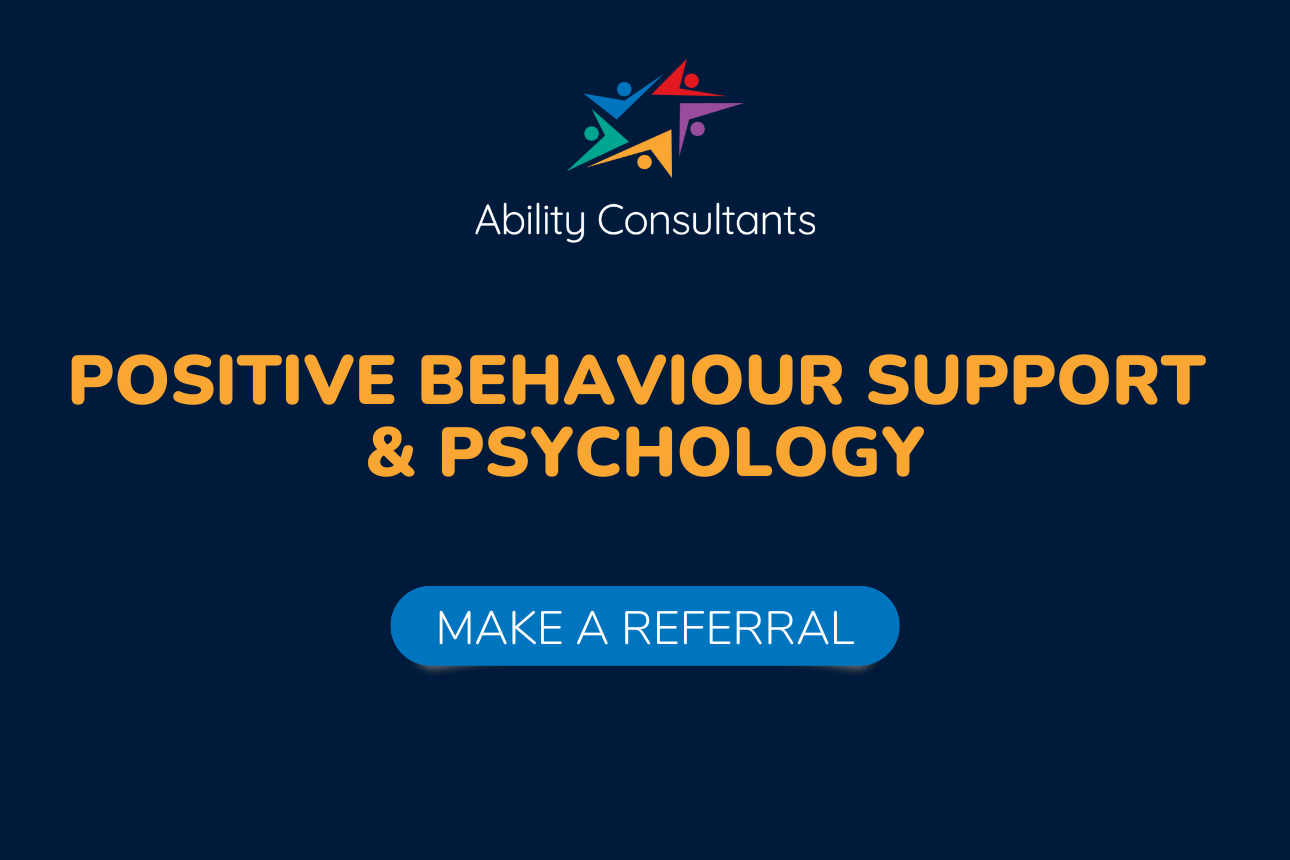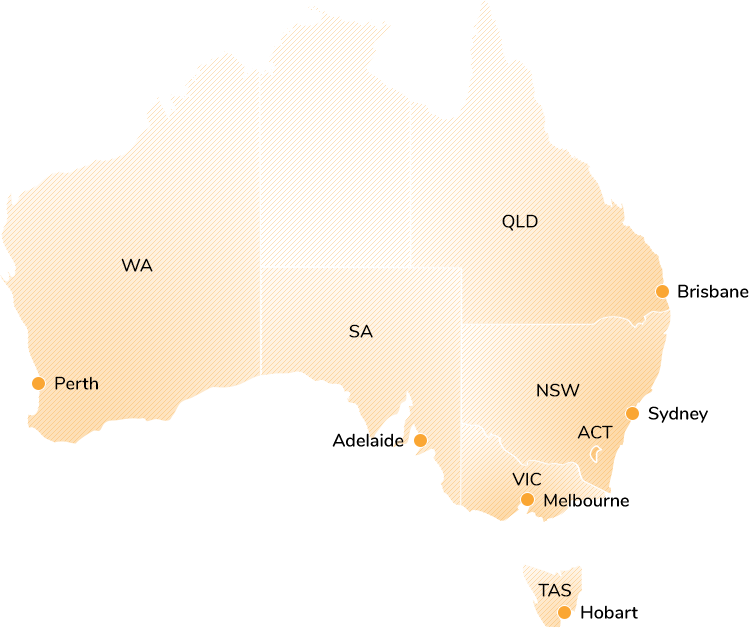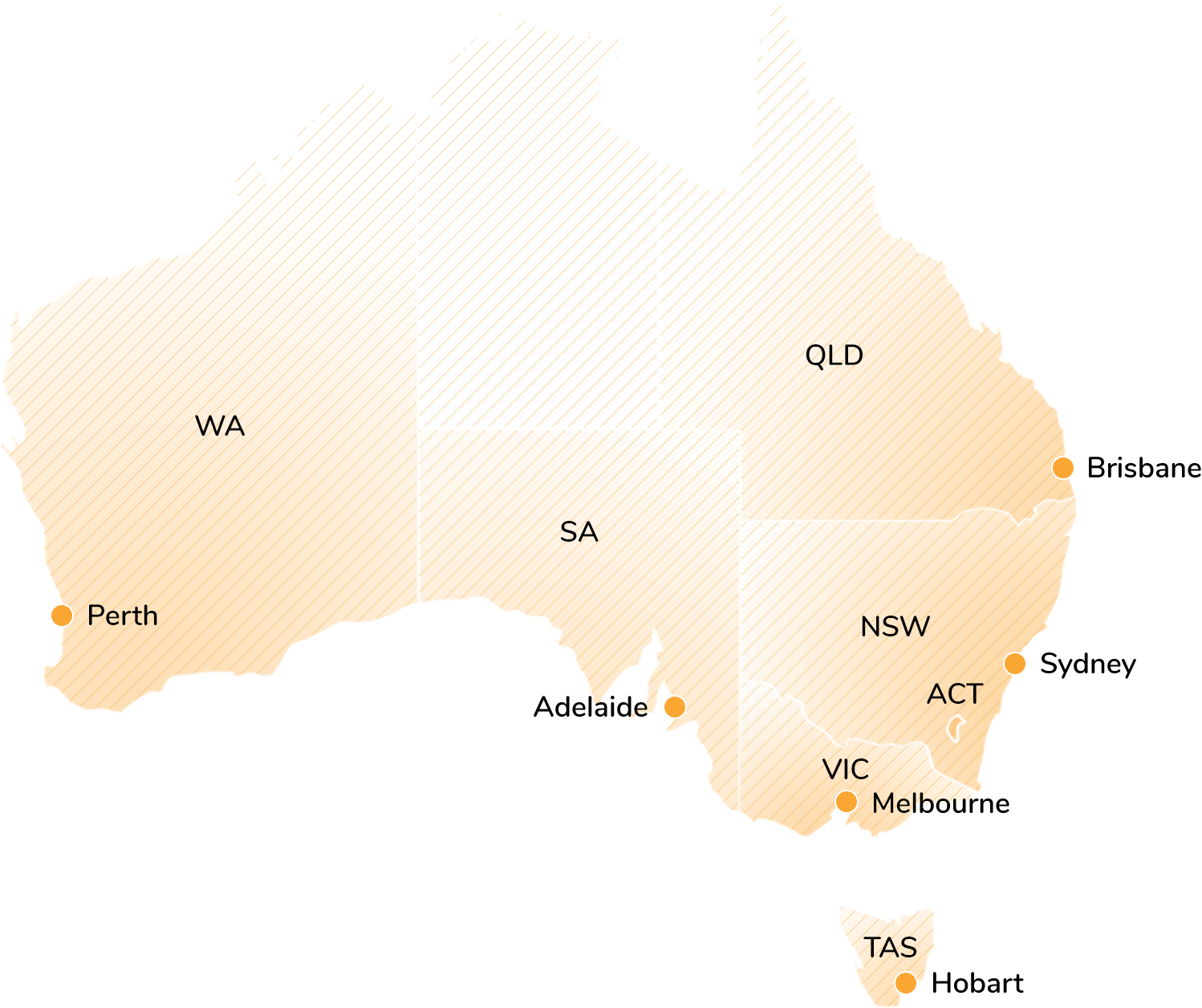What are cognitive assessments and how can they help NDIS participants?

If you’re an NDIS participant, you can use NDIS funds for psychology support, including cognitive assessments. What’s a cognitive assessment, you ask? We’re here to break it down for you. We’ll help you understand what it is, what it involves and which NDIS funds you can use for a cognitive assessment.
What is a cognitive assessment?
A cognitive assessment measures the ability an individual has to think, learn, remember, solve problems and understand their world or other people. For example, a cognitive assessment can be used to measure a person’s IQ.
A cognitive assessment measures:
- General ability and reasoning skills (e.g., ability to make decisions)
- Verbal comprehension (ability to understand spoken language and express themselves clearly)
- Visual spatial skills (e.g., recognising numbers or tying shoe laces)
- Working memory (e.g., ability to follow instructions with more than one step)
- Processing speed (how fast a person understands something)
The results of a cognitive assessment can also help diagnose learning challenges and difficulties such as dyslexia (problems identifying speech sounds and learning how they relate to letters and words) or dysgraphia (difficulties with spelling and/or trouble putting thoughts on paper).
Why might I need a cognitive assessment, and how can it improve my quality of life?
A cognitive assessment can help identify barriers in a person’s life. For example, you may find it difficult to solve problems, set goals, plan, understand a request or anticipate the result of an action.
The results of a cognitive assessment can identify specific needs you might have. Following the assessment we provide a recommendations report about the identified need. We also identify what support is needed to reach specific goals or address a challenge you might face. For example, if you have difficulty understanding a request, we could find alternatives to verbal instructions. If you have a goal but can’t identify the steps needed to achieve it, psychologists can help you with the specific goal and help you develop your planning skills
Sometimes a cognitive assessment is needed as evidence for an NDIS application, for example, to demonstrate the impact of the disability and its functional outcome.
How does a psychologist carry out a cognitive assessment?
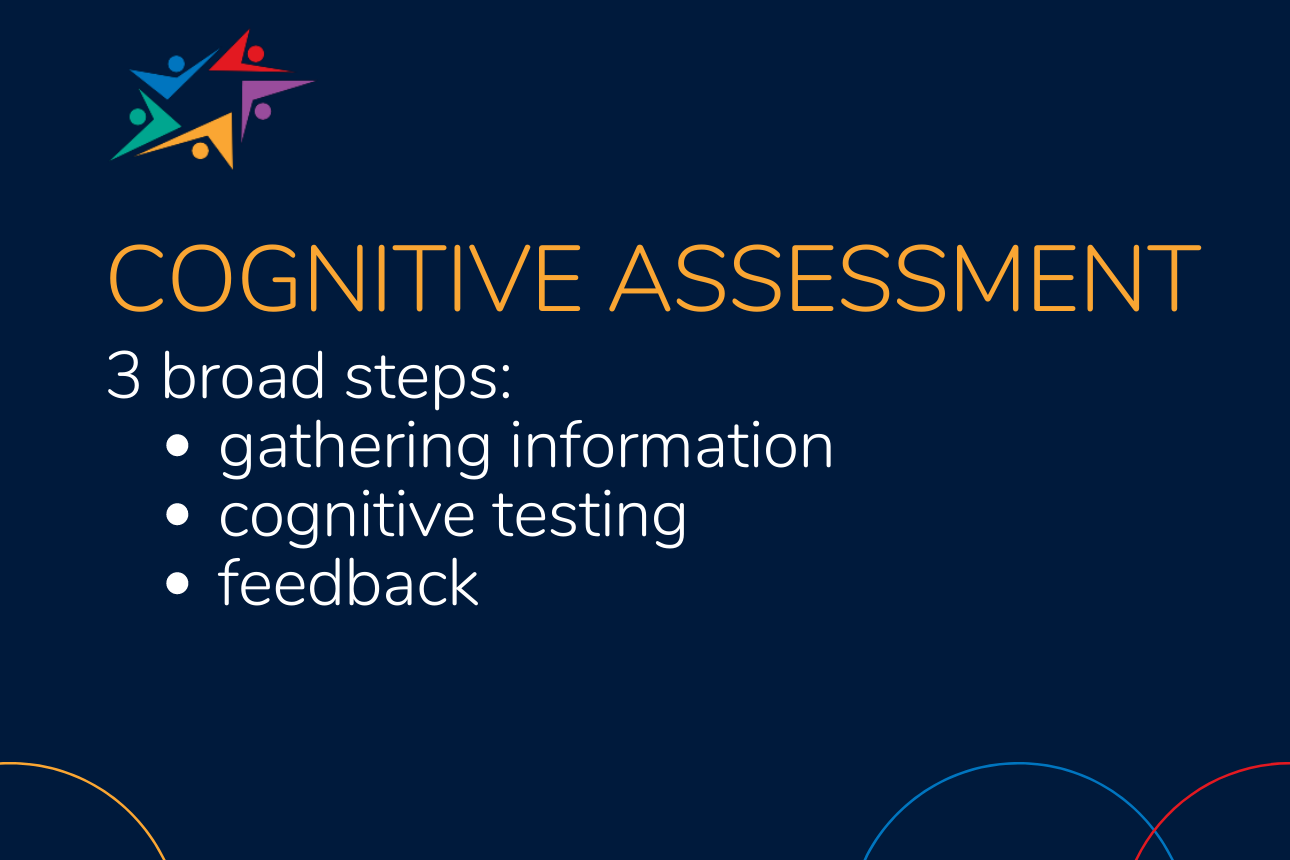
In total, a comprehensive cognitive assessment may take six to seven hours. A comprehensive cognitive assessment usually includes three broad steps:
1. Gathering information
Your psychologist will gather comprehensive background information through interviews. For example, your psychologist might meet with your family or with a child’s school teacher. Collecting background information for your cognitive assessment might take one hour, but this can vary depending on the needs of each person.
Your psychologist will need to know:
- the reason for referral;
- current diagnosis;
- about medication you are taking;
- other treatments you are undertaking; and
- information such as your age.
Examples of reasons for referral include:
- academic concerns;
- behavioural issues, such as school refusal; and
- mental health issues such as anxiety, depression, eating or dieting problems, poor peer relationships or social isolation.
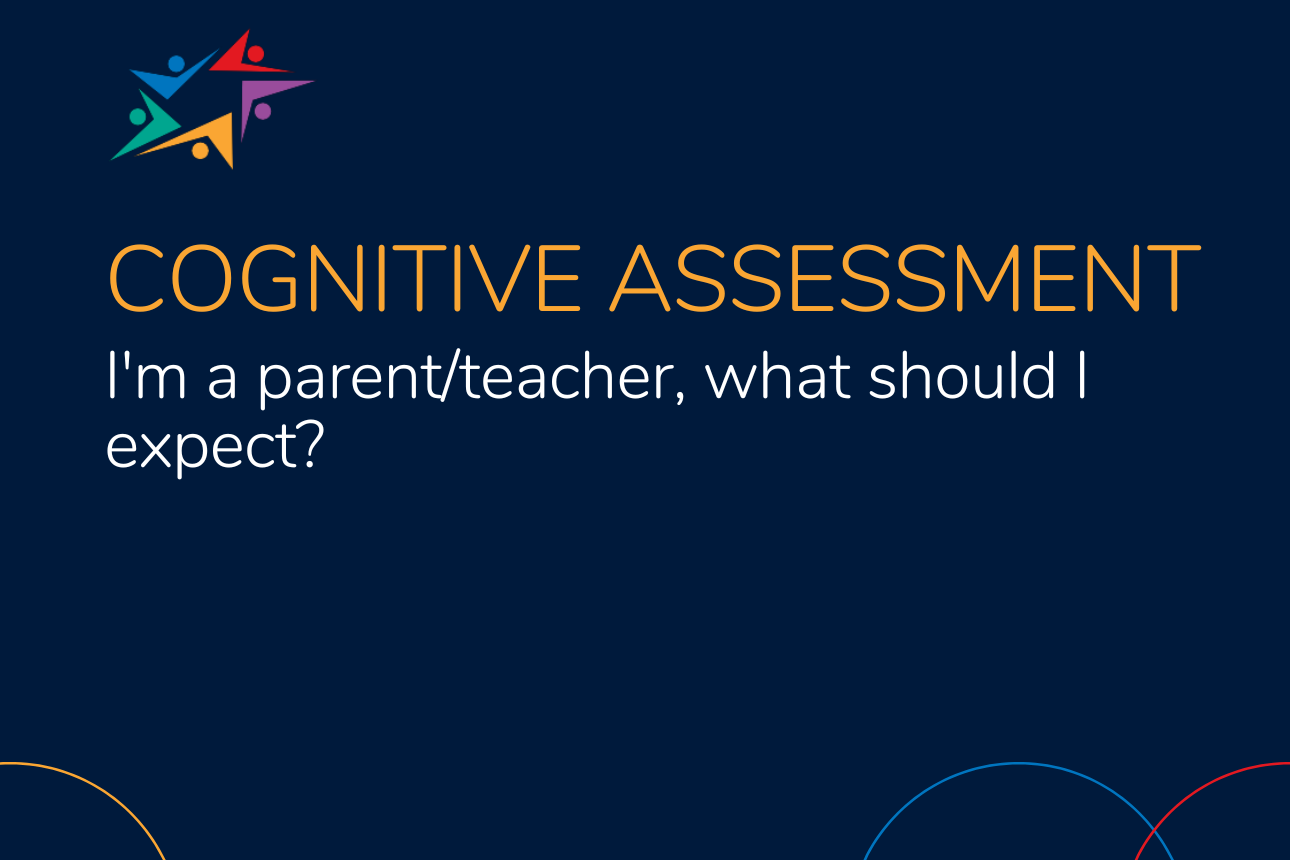
I’m a parent/guardian — what kind of questions should I expect?
If you’re a parent and your child needs a cognitive assessment, our psychologist might ask:
- what are your main concerns for your child;
- which activities cause your child the most distress;
- about your child’s special interests or abilities;
- to see existing reports from your child’s school;
- about previous treatments or interventions that have been tried; and
- for copies of reports from clinicians, such as from your child’s occupational therapist, speech pathologist etc.
I’m a teacher — what kind of questions should I expect?
Our psychologist may ask about a child’s:
- educational learning difficulties;
- academic history including school reports;
- school attendance; and
- peer relationships and social skills.
Our psychologist may also ask about any behavioural concerns you may have.
2. Cognitive testing
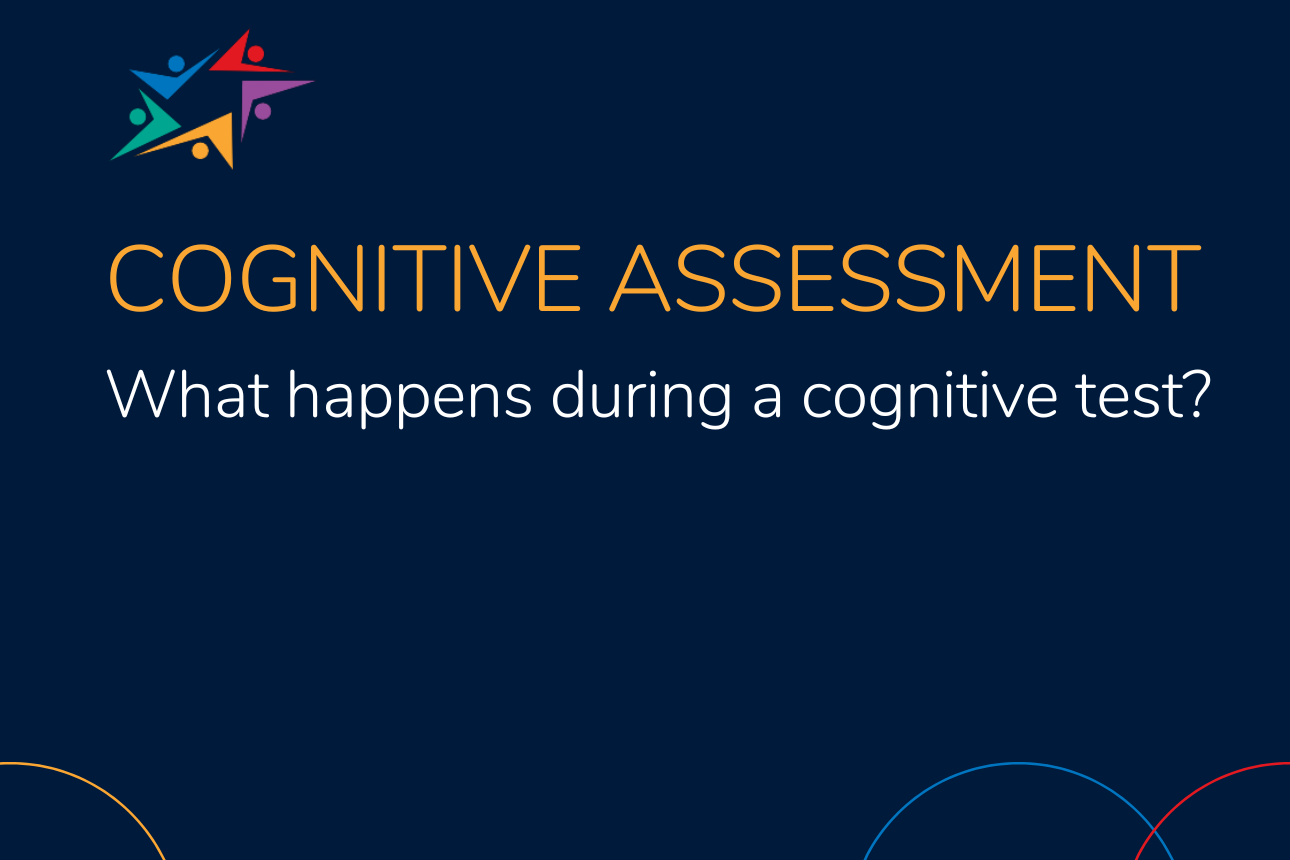
A cognitive test can be done in one session and sometimes it might take two sessions. This means that you might need one or two appointments to complete the cognitive test.
Completing the test in one sitting can take up to two hours, and completing the test in two sittings can take up to three hours in total.
When you sit a cognitive assessment, you’ll be by yourself with your psychologist. The assessment will either be provided face to face using paper and pen or through an iPad that your psychologist will provide.
During the assessment your psychologist will remain with you so they can provide assistance, check-in with how you are progressing and ensure you get a break if needed.
3. Feedback
After we’ve gathered information and once you’ve completed your assessment, we provide feedback to you and your support team. We score the tests, interpret results and write a final report. This takes about three hours.
The report is generally a minimum of seven pages. In the report, we provide details such as background information and an overview of mental status which includes general appearance, unusual or bizarre beliefs and perceptions (e.g., delusions, hallucinations), mood, and all aspects of cognition (e.g., attention, orientation, memory including behavioural observations during assessment). The report will include an interpretation of results, a summary, psychological evaluation and recommendations. Recommendation can be used to adjust strategies and interventions so they will suit the specific needs and abilities of the client.
The results of your cognitive assessment will provide a measure of your ability in comparison to the standard score, that is the average for a person of your age.
What are the different types of cognitive assessment?
The different cognitive assessments that our psychologist team uses are:
- Wechsler Intelligence Scale for Children 5th Edition (WISC-V): This assessment is used between the ages of 6 - 16 years 11 months.
- Wechsler Adult Intelligence Scale 4th Edition (WAIS-IV): This assessment is used between the ages of 16 - 90 years 11 months.
These cognitive assessments are standard tests used when testing intelligence and cognitive functioning — all trained psychologists across Australia use these cognitive assessments for clients aged 6-90 years.
Do I need to prepare anything for my cognitive assessment?
If you’re completing the cognitive test you don’t need to prepare anything before your assessment.
Please let your psychologist know if you have any special requirements such as if you would like an interpreter or if you use communication aids.
How do I organise a cognitive assessment?
A psychologist at Ability Consultants can help you with a cognitive assessment. To book a cognitive assessment, please complete our online referral form.
Which NDIS funds can I use for a cognitive assessment?
When accessing psychology services as an NDIS participant, you can use NDIS funds from your Core Support Budget or Capacity Building Budget. For more information about NDIS funding for psychology support, please view our article, “Are you wondering which NDIS funding you can use for psychology? Find out now.”



